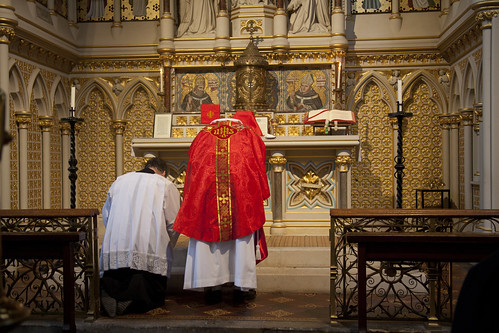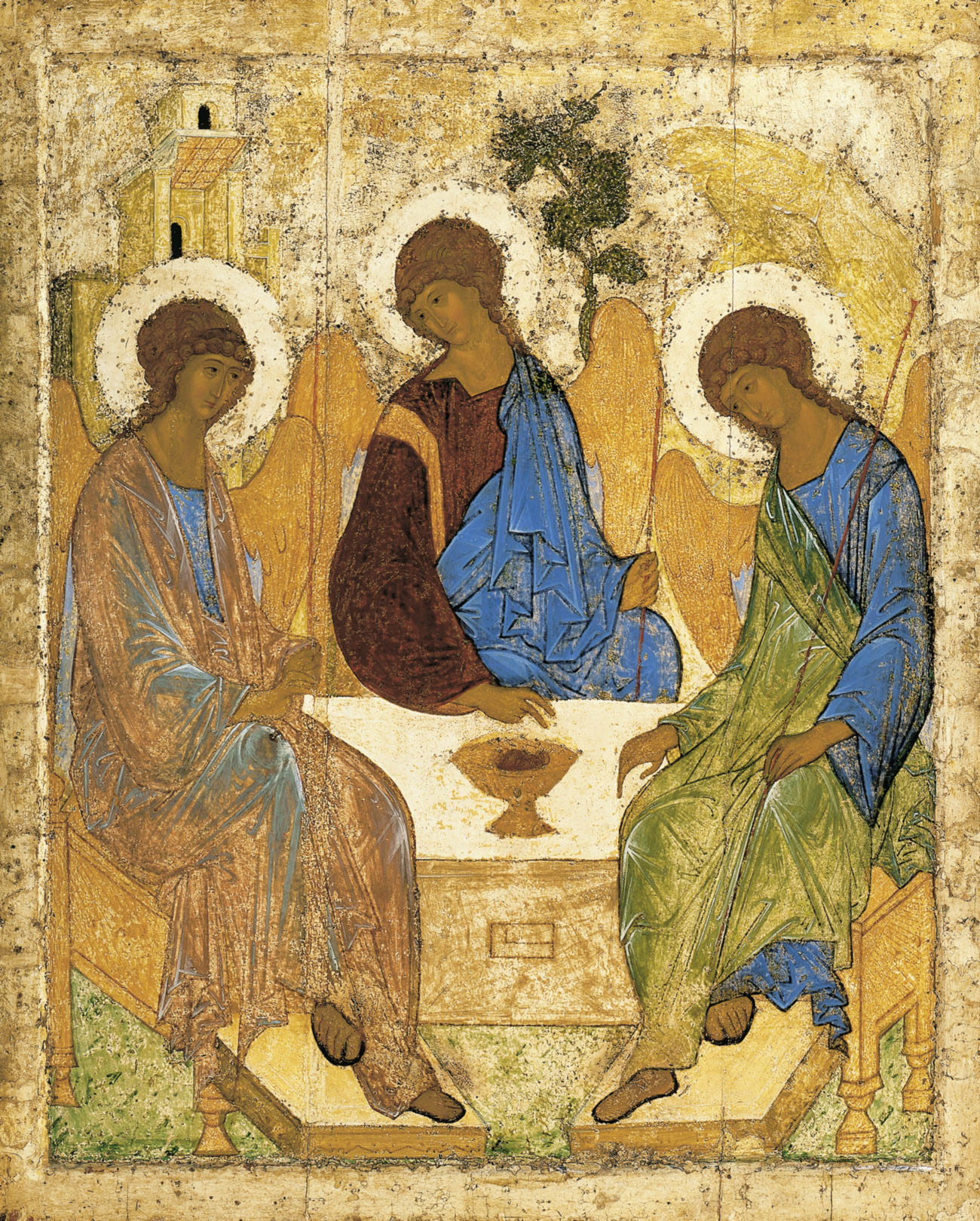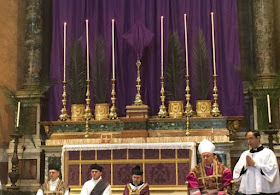 |
| St. Peter of Verona receives the Triple Crown: as virgin, martyr, and doctor. |
In the twenty-seventh year of Thomas of Aquino's life, his fellow Dominican Peter of Verona was murdered by Milanese Cathars, against whom he had vociferously preached for years. The great contention between Peter and the Cathars was the creation of the world by God instead of the Devil or some Devil-like deity. The orthodox Peter contended that the world was good, the heretics that it was evil or thoroughly corrupted.
Eleven years after this gruesome martyrdom, Thomas made a pilgrimage to the saint's tomb—for Peter had been canonized less than a year after his death—and composed the following eulogy. It would later be engraved in a slab near the sepulcher.
Praeco, lucerna, pugil Christi, populi, fideique,
Hic silet, hic tegitur, jacet hic mactatus inique.
Vox ovibus dulcis, gratissima lux animorum.
Et verbi gladius gladiis cecidit Catharorum.
Christus mirificat, populus devotus adorat,
Martyrioque fides sanctum servata decorat.
Sed Christus nova signa loqui facit, ac nova turbae
Lux datur, atque fides vulgata refulget in urbe.
Loosely Englished by Msgr. H.T. Henry:
Here silent is Christ’s Herald;
Here quenched, the People’s Light;
Here lies the martyred Champion
Who fought Faith’s holy fight.
The Voice the sheep heard gladly,
The light they loved to see
He fell beneath the weapons
Of graceless Cathari.
The Saviour crowns His Soldier;
His praise the people psalm.
The Faith he kept adorns him
With martyr’s fadeless palm.
His praise new marvels utter,
New light he spreads abroad
And now the whole wide city
Knows well the path to God.
St. Peter's killer, the hired assassin Carino of Balsamo, soon repented of his crime and fled to a Dominican monastery at Forlì. He performed penance, became a lay brother, and lived a religious life until the end of his days, having taken the name Peter.
.jpg)

























